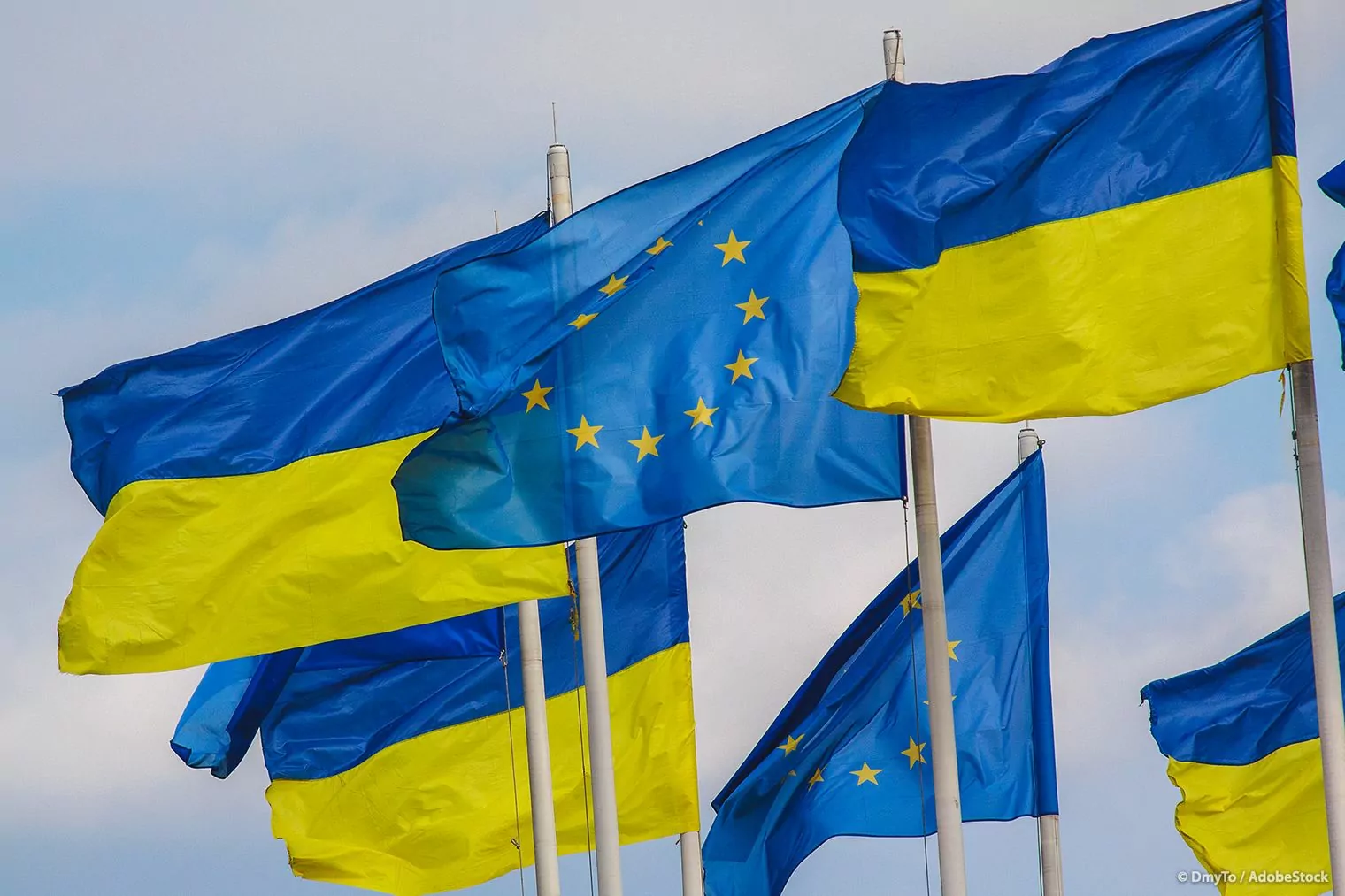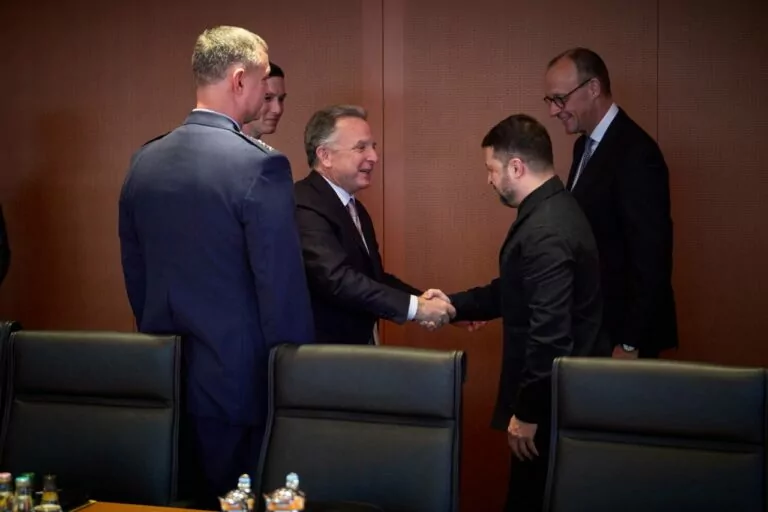The decision of the Ukrainian parliament – and then President Volodymyr Zelenskyy – to de-facto destroy the independence of anti-corruption infrastructure in Ukraine drew outrage from people and deeply concerned the EU. Zelenskyy and MPs have already registered bills to restore the independence of NABU and SAPO, but the damage to relationships with EU and eurointegration was already done.
On July 22, people in many cities of Ukraine organized demonstrations demanding that Zelenskyy veto bill #12414.
The bill subordinated independent anti-corruption institutions, the National Anti-Corruption Bureau (NABU) and the Special Anti-Corruption Prosecutor’s Office (SAPO) to the Prosecutor General.
These watchdogs were created to investigate and bring to court high-profile corruption cases, in particular involving officials. The bill, in turn, compromised their independence — the Prosecutor General in Ukraine is appointed by the President.
EU’s first reaction
The creation of NABU in 2014 was one of the demands by the International Monetary Fund (IMF) for financial support of reforms in Ukraine.
“The independence of Ukraine’s anti-corruption institutions is a cornerstone to the implementation of the ‘Fundamentals’ Cluster of the EU accession. It was also part of the 7 Candidate Status reforms, was a part of the EU Visa Liberalization Action Plan, and the EU macrofinancial aid since 2014. It’s a red thread running through Europe’s support for Ukraine for already a decade,” said Olena Halushka, head and co-founder of International Center for Ukrainian Victory (ICUV), to Gwara Media.
Spokesperson for the European Commission Guillaume Mercier called these institutions “key” for reforms in Ukraine and said that only if they are independent can they efficiently fight corruption and keep the trust of society.
On the evening of July 22, Zelenskyy did destroy NABU and SAPO’s independence by refusing to veto the bill and signing it. In his evening speech, he said that anti-corruption bodies will keep working but they’ll be “cleansed” of Russian influence.
MP Anastasia Radina (“Servant of the People”), head of Parliament’s anti-corruption committee, said that it’s hard for herto understand how “specifically provisions of this bill counteract alleged Russian agents” in conversation with Kyiv Independent.
Earlier, three (out of about 700) detectives of NABU were charged with treason and collaboration with Russia.
Kateryna Musiienko, eurointegration and international relations expert from the ANTS, told Gwara, that for the EU, this move of Kyiv’s was shocking, personally and politically.
“They just didn’t expect that with all the obligations Ukraine signed up for, we’ll be able to just roll back everything in mere 24 hours,” Musiienko said.
Olena Halushka can hardly imagine any progress on the EU integration track while “such important reforms are backslided.”
“Unfortunately, moves like this give a strong argument for Ukraine sceptics to campaign against Ukraine’s EU path,” Halushka said.
Material consequences
On the protests against the law that spread from Lviv to Kharkiv, people said that they’ve lost their patience. That was the thing that, in Olena Halushka’s opinion, pushed the EU to action.
“The EU saw the protests, saw that Ukrainian society isn’t happy with the current situation, that people said “enough,” “no more.” Then, the European Union and Ukraine’s partners also joined in with the criticism of that decision,” Halushka said.
After Zelenskyy signed bill #12414 (that become, after coming into effect, law #4555), EU Commission reduced the tranche for Ukraine Facility.
Ukraine Facility is the project that started in February 2024, with €50 billion that the EU planned to send to Ukraine over four years. The money was for stabilizing the country’s economy during Russia’s war.
“This tool was created to support Ukraine’s state budget, as a recovery fund,” says Musiienko, “Plus, (there were plans that) after the war, it’ll work as a channel through which other financing will be transferred.”
On July 25, Guillaume Mercier announced that, in the fourth tranche of financial aid under the Ukraine Facility, the EU will allocate €3.05 billion instead of planned €4.5 billion.
Formally, Ukraine Facility’s financing isn’t connected to the independence of anti-corruption agencies.
The reason for reduction in the fourth tranche was that Ukraine completed 13 out of 16 reforms it promised to complete.
According to Mercier, three reforms have to do with decentralization, the bill about reform of the Asset Recovery and Management Agency (ARMA), and the selection of judges to the High Anti-Corruption Court. Mercier was quoted on that by European Pravda.
Experts Gwara talked agreed that the cuts to the financial aid do connect to undermining the independence of NABU and SAPO, though.
Musiienko says the removal of €1.5 billion as a way to contain the situation was shocking for Kyiv.
“(EU said) if you don’t work on reform enough, we won’t pay you in proportion to the reforms you haven’t done,” she says. “And I think Kyiv never seriously thought of such a threat. They thought it wouldn’t get to the cuts of financial aid.”
The EU, Musiienko says, reacted unusually quickly. If Ukraine’s authorities don’t continue reforms and restore the independence of anti-corruption watchdogs, she predicts the Union can roll other things back, “from visa-free regime to economic agreements.”
Expert concludes: Ukraine can still get money from the Ukraine Facility – if it completes the required reforms – but the damage to relations with the EU is already done.
Is restoring trust possible?
Will Ukraine be able to return the EU’s trust? It depends on Ukraine’s authorities — if they listen to people on the protests, experts, and European partners.
Up until last week, the EU had a moratorium on criticism of Ukraine’s reform progress.
According to Olena Halushko, European partners’ thinking went like this: don’t demand reforms out loud, instead focusing on security, defence against Russian aggression – both in public and private meetings.
“Priority number one is to survive because if we lose the country, there’ll be nothing to reform,” Halushka says. “But internal reforms are about Ukraine’s resilience and capacity. Right now, in new electoral cycles in Europe, right-wing parties are gaining strength, parties that criticise Ukraine and the EU. In such circumstances, we need to look for internal resources for the middle- and long-term, and become less dependent on foreign aid.”
Fighting against corruption, consequently, directly impacts Ukraine’s long-term defence capacity and its ability to protect itself in Russia’s war, Halushka believes.
Elimination of independence of NABU and SAPO broke the EU’s trust in Ukraine on an individual level, too.
Musiienko says that now it’ll be more difficult to vote for Ukrainian resolutions in the European Parliament. One of the reasons is that MEPs who never particularly got into the inner kitchen of Ukraine’s politics but supported the country resisting Russian aggression now know that Kyiv is capable of dubious decisions.
Musiienko says that, currently, both the EU, experts, and people in Ukraine have to “pressure” Kyiv and “take the maximum out of the situation,” not stopping on the bill that’ll restore the independence of anti-corruption watchdogs.
“Right now, the EU shows us, rather lightly, that €1.5 billion is only the beginning and, if there’s no progress, there’ll be further escalation,” she says.
As of writing this article (July 29), Ukraine’s media have already begun to report on possible future actions from the EU. If MPs won’t restore the independence of NABU and SAPO or will try to “partially” restore it, writes European Pravda, citing EU officials, the EU will stop other financing streams. For instance, a stop might be put on loans from frozen Russian assets, funding from the EBRD, and the EIB.
Before that, MPs from the opposition, e.g., Yaroslav Zhelezniak (“Holos” party) wrote that, apart from processes around NABU and SAPO, EU will closely follow the appointment of Bureou of Economic Security (BES) that should be approved by the government by the end of the July. According to him, Ursula von der Leyen, the President of the European Commission, specifically asked about that in a phone call with Zelenskyy.
The candidate to head BES was selected by the independent commission, and the Bureau was created to investigate and prevent economic crimes. Without this appointment, Ukraine can lose up to $5 billion from the IMF.
On the second day of protests, a group of MPs, mostly from the opposition parties, wrote up a bill that restores the independence of NABU and SAPO by removing everything that was changed with bill #12414.
Later, Zelenskyy submitted his own bill. It was almost identical, but included regular polygraph checks of NABU and SAPO employees and forbids them from going abroad, except for business trips. Also, Zelenskyy’s bill doesn’t have provisions on experience requirements and competitive selection for SAPO’s prosecutors.
The Center for Policy and Legal Reform recommends that the opposition’s bill “receives preference.”
The Verkhovna Rada’s session that will pass or will not pass these bills is scheduled on July 31.
Zelenskyy signed the bill about ARMA reform right after the information about the Ukraine Facility financing was cutbecause of its spread.
“The law about ARMA is signed — now, we should appoint the finalist of the competitive selection for the head of BES. It’s vital (for authorities) to also stop prosecuting activists and pressure independent media,” Halushka says.
Musiienko points out two reasons for the EU’s motivation to support Ukraine’s anti-corruption infrastructure. First of all, the EU has to report on its investments in Ukraine to its constituents. Second, Ukraine is connected to various defenceprojects, including a joint defence alliance.
“That’s pragmatism, in some way, because they understand that they can’t prepare Europe for war without Ukraine. They bet not only on eurointegration, but on defence, too.”
Mosiienko says that ANTS and other experts warned the EU about a possible backslide in reforms from Ukraine’s officials, but the EU didn’t react. Now, it’ll be important for the Union to listen to specialists from Ukraine and react quicker, she says. That is especially crucial considering that the USA’s involvement in helping both Ukraine and the EU has become unpredictable.
“In this world, when you (EU) have such a global role, you must have plan A and plan B, more coherent, predictable policies. Then, (we’ll see) how the EU will crystallise as a strong geopolitical actor under the pressures of various circumstances.”
The project is co-financed by the governments of Czechia, Hungary, Poland and Slovakia through Visegrad Grants from the International Visegrad Fund. The mission of the fund is to advance ideas for sustainable regional cooperation in Central Europe.
The project is supported by the Ministry of Foreign Affairs of the Republic of Korea.





